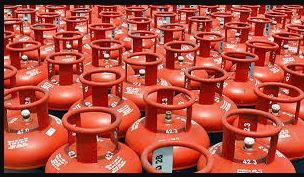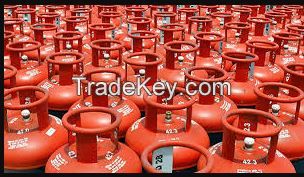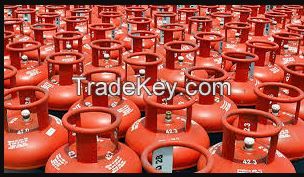Description
Liquefied petroleum gas (also called LPG, GPL LP Gas, or liquid
propane gas) is a flammable mixture of hydrocarbon gases used as a
fuel in heating appliances and vehicles. It is increasingly used as
an aerosol propellant and a refrigerant, replacing
chlorofluorocarbons in an effort to reduce damage to the ozone
layer. When specifically used as a vehicle fuel it is often
referred to as autogas.

Varieties of LPG bought and sold include mixes that are primarily
propane (C3H8), primarily butane (C4H10) and, most commonly, mixes
including both propane and butane, depending on the season — in
winter more propane, in summer more butane[citation needed].
Propylene and butylenes are usually also present in small
concentration. A powerful odorant, ethanethiol, is added so that
leaks can be detected easily. The international standard is EN 589.
In the United States, or amyl mercaptan are also approved
odorants.
LPG is synthesised by refining petroleum or "wet" natural gas, and
is usually derived from fossil fuel sources, being manufactured
during the refining of crude oil, or extracted from oil or gas
streams as they emerge from the ground. It currently provides about
3% of the energy consumed, and burns cleanly with no soot and very
few sulfur emissions, posing no ground or water pollution hazards.
LPG has a typical specific calorific value of 46.1 MJ/kg compared
with 42.5 MJ/kg for fuel-oil and 43.5 MJ/kg for premium grade
petrol (gasoline) However, its energy density per volume unit
of 26 MJ/l is lower than either that of petrol or fuel-oil
LPG evaporates quickly at normal temperatures and pressures and is
supplied in pressurised steel cylinders. They are typically filled
to between 80% and 85% of their capacity to allow for thermal
expansion of the contained liquid. The ratio between the volumes of
the vaporized gas and the liquefied gas varies depending on
composition, pressure, and temperature, but is typically around
250:1. The pressure at which LPG becomes liquid, called its vapour
pressure, likewise varies depending on composition and temperature;
for example, it is approximately 220 kilopascals (2.2 bar) for pure
butane at 20 °C (68 °F), and approximately 2.2 megapascals (22 bar)
(319 psi) for pure propane at 55 °C (131 °F). LPG is heavier than
air, and thus will flow along floors and tend to settle in low
spots, such as basements. This can cause ignition or suffocation
hazards if not dealt with.
Large amounts of LPG can be stored in bulk
cylinders and can be buried underground





